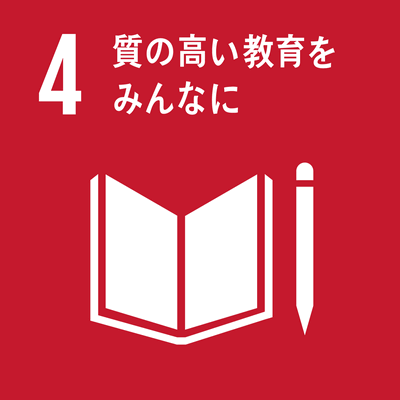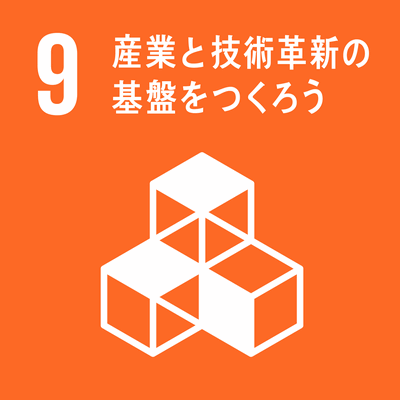シラバス表示
シラバスの詳細な内容を表示します。
→ 閉じる(シラバスの一覧にもどる)
科目の基本情報
| 開講年度 | 2020 年度 | |
|---|---|---|
| 開講区分 | 工学研究科(博士前期課程)電気電子工学専攻 | |
| 領域 |
電気電子工学専攻指定 |
|
| 受講対象学生 |
大学院(修士課程・博士前期課程・専門職学位課程) : 1年次, 2年次 |
|
| 選択・必修 | 選択必修 |
|
| 授業科目名 | 材料科学PBL特論 | |
| ざいりょうかがくぴーびーえるとくろん | ||
| Problem Based Learning in Materials Science | ||
| 単位数 | 2 単位 | |
| ナンバリングコード | EN-EMAT-5
|
|
| 開放科目 | 非開放科目 | |
| 開講学期 |
前期 |
|
| 開講時間 |
金曜日 1, 2時限 |
|
| 開講場所 | 工学部23番教室 | |
| 担当教員 | 松井 龍之介(工学研究科電気電子工学専攻) | |
| MATSUI, Tatsunosuke | ||
| SDGsの目標 |
|
|
学修の目的と方法
| 授業の概要 | 専門分野に関わらず、研究開発技術者にとって問題発見・解決能力は必要不可欠である。固体物性、材料科学、ならびにそれらに基づく電子デバイスの研究開発者にとっては、応用物理学に関する広範な知見はその基礎となる素養であろう。本講義では、自らの修士論文研究テーマに必ずしもとらわれない応用物理学上の基礎知識ならびに最近の研究動向に関し、応用物理学会「応用物理分野のアカデミック・ロードマップ」を題材に広く学習する。また、グループ討論や発表会を通してコミュニケーション・プレゼン能力の向上も図る。これらの学習を通し、既存の電子材料工学にとらわれない幅広い知識と創造性を培い、新たな価値・産業の創出に資する基礎能力を育成する。 (Course description/outline) The ability of finding what are the problem and solve them is indispensable for engineers and developers, no matter what their majors are. Wide range of knowledge on applied physics is a basic ground for engineers and developers work in the field of solid state physics, materials science and electronic devices based on them. In this seminar course, we widely learn the basics and state-of-the-art researches on applied physics, which is not necessarily related to their own research themes for their masters' thesis, based on the reports "Academic roadmaps on applied physics" edited by the Japan Society of Applied Physics. The course proceeds with group discussions and presentations aiming at improving their skills on communication and presentation. Through these activities, students are required to achieve wide range of basic knowledges, skills and creativities, which is not necessarily limited to the existing electronic engineering, for future development of new values and industrial developments. |
|---|---|
| 学修の目的 | 応用物理学上の基礎知識ならびに最近の研究動向を自己学習とグループ討論により自発的に習得する。また、グループ討論や発表会を通してコミュニケーション・プレゼン能力の向上も図る。 (Learning objectives) Acquire the basics knowledges and learn state-of-the-art researches on applied physics through self-reflection and group discussions. Improve their skills on communication and presentation through group discussions and presentations. |
| 学修の到達目標 | (1)材料科学に関する基礎的な知識や最近の研究動向を、自己学習とグループ学習により獲得する。 (2)多面的な視点から事例を深く理解する習慣を身につける。 (3)自分の意見をまとめ、グループ討論する能力を育成する。 (Achievements) (1) Acquire the basics knowledges and learn state-of-the-art researches on materials science through self-reflection and group discussions. (2) Make it routine to deeply understand things from various viewpoints. (3) Improve skills to summarize their thoughts and discuss in a group. |
| ディプロマ・ポリシー |
|
| 成績評価方法と基準 | レポート、ポートフォーリオ40%、グループ発表30%、グループ内評価30%。ただし、欠席5回以上は対象外とする(研究・学会等の出張は除く)。 (Grading policies and criteria) Reports and portfolio 40%, group presentation 30%, mutual evaluations in the group 30%. Those who are absent more than five times will fail, except authorized absence due to attendance to conferences. |
| 授業の方法 | 講義 演習 |
| 授業の特徴 |
問題提示型PBL(事例シナリオ活用含) 問題自己設定型PBL プロジェクト型PBL 実地体験型PBL Moodleを活用する授業 |
| 授業改善の工夫 | |
| 教科書 | 「応用物理分野のアカデミック・ロードマップ」、応用物理学会 (Textbooks) "Academic roadmaps on applied physics" edited by the Japan Society of Applied Physics. |
| 参考書 | 「歴史をかえた物理実験」、霜田光一、丸善(1996) |
| オフィスアワー | 毎週金曜日12:00~13:00 松井准教授室(電子情報棟3階) (Office hour) Fri, 12:00~13:00 at office. |
| 受講要件 | 電気電子工学の基礎知識とその応用分野の一部を身につけていること (Prerequisites) Basic knowledge on electrical and electronic engineering and their application. |
| 予め履修が望ましい科目 | |
| 発展科目 | |
| その他 |
授業計画
| MoodleのコースURL |
|---|
| キーワード | 材料科学 固体物理 電気電子工学 応用物理学 PBL グループ学習 |
|---|---|
| Key Word(s) | materials science, solid state physics, electric and electronic engineering, applied physics, PBL, group learning |
| 学修内容 | 第1回:アイスブレーキング(ガイダンス、Moodleの紹介、事例設定) 第2回:第1クール(事例の説明、グループ討論) 第3回:第1クール(追加説明、グループ討論) 第4回:第1クール(発表、振り返り) 第5回:第2クール(事例の説明、グループ討論) 第6回:第2クール(追加説明、グループ討論) 第7回:第2クール(発表、振り返り) 第8回:第3クール(事例の説明、グループ討論) 第9回:第3クール(追加説明、グループ討論) 第10回:第3クール(追加説明、グループ討論) 第11回:第3クール(発表、振り返り) 第12回:第4クール(事例の説明、グループ討論) 第13回:第4クール(追加説明、グループ討論) 第14回:第4クール(追加説明、グループ討論) 第15回:第4クール(発表、振り返り) 第16回:グループ活動の省察 |
| 事前・事後学修の内容 | 自己学習の内容と、講義を通して学んだ事柄に関する省察とをそれぞれレポート、ポートフォーリオとして提出する。 |

